Farmonaut Insights: UK Farmers Protest Inheritance Tax Changes – Impact on Family Farm Viability
“Over 1,000 British farmers gathered in London to protest proposed inheritance tax changes affecting family farms.”
Welcome to our latest Farmonaut Insights blog post, where we delve into the pressing issues affecting the agricultural community. Today, we’re exploring a topic that has stirred significant controversy in the UK farming sector: the proposed changes to inheritance tax rules and their potential impact on family farm viability.
As a company dedicated to revolutionizing agriculture through precision technology, we at Farmonaut understand the importance of sustainable farming practices and the challenges faced by farmers worldwide. While we don’t directly influence tax policies, we believe it’s crucial to keep our community informed about developments that could shape the future of farming.
The Heart of the Matter: UK Farmers’ Protest
Recently, the streets of London witnessed an unprecedented sight: thousands of farmers, many driving tractors and brandishing signs declaring “no farms, no food,” converged to voice their opposition to impending changes in inheritance tax rules. This demonstration highlights the deep-rooted concerns within the British agricultural community about the future of family-owned farms.

Understanding the Proposed Tax Changes
The Labour government has announced plans to impose a 20% inheritance tax on farms valued over $1.3 million, set to take effect in April 2026. This move marks a significant shift from the current system, which allows agricultural lands and related properties to be passed down through generations without incurring tax liability.
Finance Minister Rachel Reeves framed this change as part of a broader initiative to address perceived inequities in agricultural land ownership. However, the farming community sees it differently, viewing the tax as a threat to the very fabric of British agriculture.
The Farmer’s Perspective
Tom Bradshaw, President of the National Farmers Union (NFU), has been vocal about the precarious financial situation of British farmers. He emphasizes that with profit margins below 1%, this new tax could be the final straw for many family-run farms.
“We operate on razor-thin margins,” Bradshaw stated during the protest. “This tax isn’t just about money; it’s about the future of our farms, our food security, and our rural communities.”
Government Stance vs. Agricultural Reality
While Prime Minister Keir Starmer has defended the initiative, claiming that most farms will remain unaffected, agricultural organizations paint a different picture. The NFU and the Country Land and Business Association (CLA) argue that up to 70,000 farms, both large and small, could be at risk.
This discrepancy in perspectives highlights the need for a deeper understanding of the long-term implications of such tax changes on agricultural land management and farm inheritance planning.
The Role of Technology in Addressing Profitability Concerns
At Farmonaut, we believe that technology can play a crucial role in addressing some of the profitability concerns raised by farmers. Our satellite-based farm management solutions offer tools for precision agriculture, helping farmers optimize their operations and potentially improve their bottom line.
For example, our crop health monitoring system uses multispectral satellite imagery to provide insights into vegetation health, soil moisture levels, and other critical metrics. This data can help farmers make informed decisions about irrigation, fertilizer usage, and pest management, ultimately optimizing crop yields and reducing resource wastage.
Impact on Family Farm Viability
The proposed tax changes raise serious questions about the long-term viability of family farms in the UK. Here’s a closer look at some of the potential impacts:
- Forced Sale of Land: Some farms may be forced to sell portions of their land to cover the tax bill, potentially reducing the farm’s operational capacity.
- Reduced Investment: With the prospect of a significant tax bill looming, farmers might be less inclined to invest in farm improvements or new technologies.
- Succession Planning Challenges: The new rules could complicate succession planning, making it more difficult for farms to be passed down through generations.
- Impact on Rural Communities: As family farms struggle, there could be a ripple effect on rural economies and communities that depend on agriculture.
Comparative Analysis: Current vs. Proposed Inheritance Tax System
| Aspect | Current System | Proposed Changes | Potential Impact on Family Farms |
|---|---|---|---|
| Agricultural Property Relief | 100% relief on agricultural property | 20% tax on farms valued over $1.3 million | Significant tax burden for larger farms; potential forced land sales |
| Business Property Relief | 100% relief on business assets | Potential restrictions on relief | Reduced ability to pass on farm-related businesses |
| Tax-free Threshold | No specific threshold for farms | $1.3 million threshold | Many family farms could exceed this threshold |
| Payment Deferral Options | Available in some cases | To be determined | Crucial for farm continuity; lack of options could force sales |
| Estimated Impact | Minimal impact on most farms | Up to 70,000 farms potentially affected | Widespread concern across the farming sector |
“UK agricultural sector contributes approximately £120 billion annually to the national economy, potentially impacted by new tax rules.”
The Broader Context: European Agricultural Policies
The UK’s proposed tax changes come at a time when agricultural policies across Europe are under scrutiny. Farmers in various European countries have been protesting against policies they believe threaten their livelihoods. While the UK protest maintained a more festive atmosphere, the underlying concerns mirror those seen across the continent.
These protests highlight the delicate balance between government policies aimed at economic and environmental goals and the practical realities faced by farmers. As we navigate these changes, it’s crucial to consider how sustainable farming practices can be encouraged without jeopardizing the viability of family farms.
The Role of Precision Agriculture in Farm Viability
In the face of these challenges, precision agriculture technology offers a ray of hope. By optimizing resource use and improving crop yields, these technologies can help farms become more profitable and sustainable. At Farmonaut, we’re committed to making these tools accessible to farmers of all sizes.
Our Jeevn AI Advisory System, for instance, provides real-time insights and expert crop management strategies. By analyzing satellite data and other inputs, it generates customized advice that can help farmers improve their productivity and efficiency.
The Government’s Response
In response to the protests, the UK government has reiterated its commitment to the agriculture sector. Environment Minister Steve Reed emphasized that the decision-making process is intended to benefit the entire country, reflecting a broader economic strategy.
The government has promised significant funding aimed at enhancing sustainable food production. However, many in the farming community remain skeptical about whether these measures will be sufficient to offset the potential impact of the new tax rules.
Looking Ahead: The Future of British Agriculture
As the debate over inheritance tax changes continues, it’s clear that the future of British agriculture hangs in the balance. The outcome of this conflict could shape the landscape of farming in the UK for generations to come.
Key considerations for the future include:
- Balancing Taxation and Farm Viability: Finding a middle ground that addresses government revenue needs without crippling family farms.
- Embracing Technology: Leveraging precision agriculture and smart farming solutions to improve profitability and sustainability.
- Sustainable Farming Practices: Encouraging environmentally friendly farming methods that also support economic viability.
- Support for Young Farmers: Developing policies that make it easier for the next generation to enter and succeed in farming.

The Role of Agritech in Addressing Challenges
As we navigate these complex issues, it’s clear that technology will play a crucial role in the future of farming. At Farmonaut, we’re committed to developing solutions that address the evolving needs of farmers worldwide.
Our satellite-based crop health monitoring, AI advisory systems, and blockchain-based traceability solutions are designed to help farmers improve their productivity, reduce costs, and adapt to changing environmental and economic conditions.
The Importance of Sustainable Farming Practices
As we consider the future of British agriculture, it’s crucial to emphasize the importance of sustainable farming practices. These practices not only help protect the environment but can also contribute to long-term farm viability. Some key aspects of sustainable farming include:
- Soil Conservation: Implementing techniques to maintain soil health and prevent erosion.
- Water Management: Utilizing efficient irrigation systems and water conservation methods.
- Biodiversity: Promoting diverse ecosystems on farmland to support natural pest control and pollination.
- Renewable Energy: Incorporating solar, wind, or biomass energy sources to reduce reliance on fossil fuels.
- Precision Agriculture: Using technology to optimize resource use and minimize waste.
At Farmonaut, our satellite-based solutions can help farmers implement and monitor these sustainable practices more effectively. For instance, our crop health monitoring system can help farmers identify areas that may need attention, allowing for targeted interventions that reduce overall resource use.
The Role of AI in Modern Agriculture
Artificial Intelligence (AI) is increasingly playing a crucial role in agriculture, offering solutions to many of the challenges faced by farmers today. At Farmonaut, we’re at the forefront of this technological revolution with our Jeevn AI Advisory System.
Here’s how AI is transforming agriculture:
- Predictive Analytics: AI can analyze historical data, weather patterns, and market trends to help farmers make informed decisions about planting and harvesting.
- Pest and Disease Detection: AI-powered image recognition can identify potential pest or disease issues early, allowing for prompt intervention.
- Yield Prediction: By analyzing various data points, AI can provide accurate yield predictions, helping farmers plan their resources and negotiate better prices.
- Automated Farming: AI is enabling the development of autonomous farming equipment, reducing labor costs and increasing efficiency.
The Future of Family Farms: Adapting to Change
While the proposed inheritance tax changes pose significant challenges, they also present an opportunity for family farms to evolve and adapt. Here are some strategies that farms might consider:
- Diversification: Exploring alternative revenue streams such as agritourism or value-added products.
- Collaboration: Forming cooperatives or partnerships to share resources and reduce individual risk.
- Education and Training: Investing in continuous learning to stay updated on the latest farming techniques and technologies.
- Succession Planning: Developing comprehensive plans for transferring farm ownership and management to the next generation.
- Technology Adoption: Embracing precision agriculture and other technological solutions to improve efficiency and profitability.
At Farmonaut, we’re committed to supporting farmers through these transitions. Our platform is designed to be scalable, allowing farms of all sizes to benefit from advanced agricultural technologies.
Conclusion: A Balanced Approach to Agricultural Policy
As we’ve explored in this blog post, the proposed changes to inheritance tax rules in the UK have sparked significant debate within the farming community. While the government aims to address perceived inequities in land ownership, farmers are justifiably concerned about the impact on family farm viability.
Moving forward, it’s crucial that policymakers, farmers, and technology providers work together to find solutions that support both the economic needs of the country and the viability of family farms. This may involve:
- Revisiting the proposed tax thresholds and considering more nuanced approaches that take into account the unique challenges faced by family farms.
- Developing support programs to help farms adapt to changing economic and environmental conditions.
- Investing in agricultural research and technology to improve farm productivity and sustainability.
- Creating incentives for sustainable farming practices that benefit both farmers and the environment.
At Farmonaut, we remain committed to providing innovative solutions that can help farmers navigate these challenges. By leveraging precision agriculture technology, AI-driven insights, and sustainable farming practices, we believe that family farms can not only survive but thrive in the face of change.
As this situation continues to evolve, we’ll keep our community updated on any new developments. In the meantime, we encourage farmers to explore how technology can help them optimize their operations and improve their resilience in the face of economic and policy challenges.
FAQs
- Q: How will the proposed inheritance tax changes affect small family farms?
A: While the government claims that most small farms will be unaffected, agricultural organizations argue that farms valued over $1.3 million could face significant tax liabilities, potentially forcing some to sell land or assets. - Q: Can precision agriculture technology help offset the potential impact of these tax changes?
A: While technology can’t directly address tax liabilities, solutions like Farmonaut’s satellite-based crop monitoring can help improve farm efficiency and profitability, potentially making it easier for farms to manage additional financial burdens. - Q: How does the UK’s proposed inheritance tax for farms compare to policies in other countries?
A: The proposed system is similar to the U.S. estate tax, but many European countries have varying policies for agricultural inheritance. It’s important to note that each country’s agricultural sector has unique characteristics that influence policy decisions. - Q: What alternatives are farmers proposing to the inheritance tax changes?
A: Farmers and agricultural organizations are calling for maintaining current exemptions for agricultural property, or implementing a more gradual approach that takes into account the unique challenges faced by family farms. - Q: How can farmers prepare for potential changes in inheritance tax rules?
A: Farmers should consider consulting with financial advisors to develop comprehensive succession plans, explore diversification opportunities, and invest in technologies that can improve farm efficiency and profitability.
For more information on how Farmonaut’s satellite-based solutions can help your farm, visit our web app or check out our API. For developers interested in integrating our technology, please refer to our API Developer Docs.






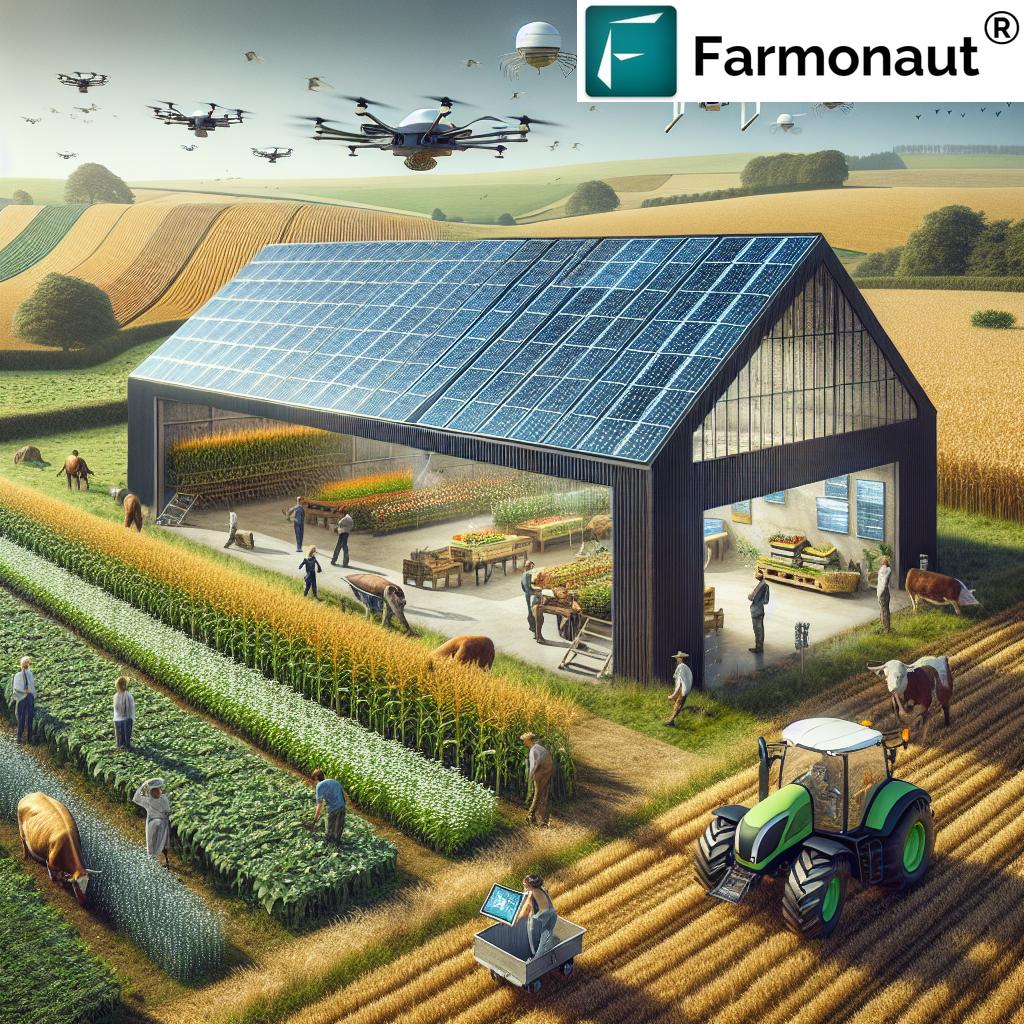
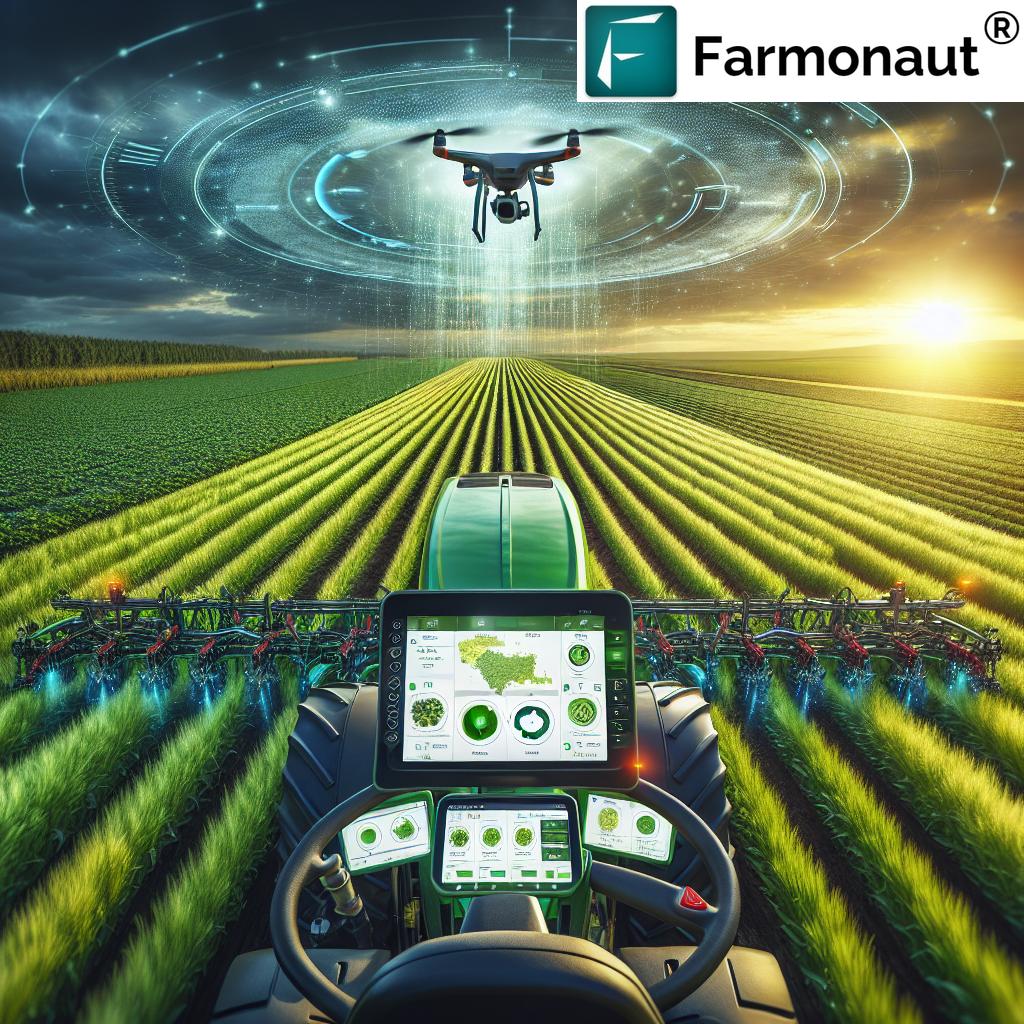
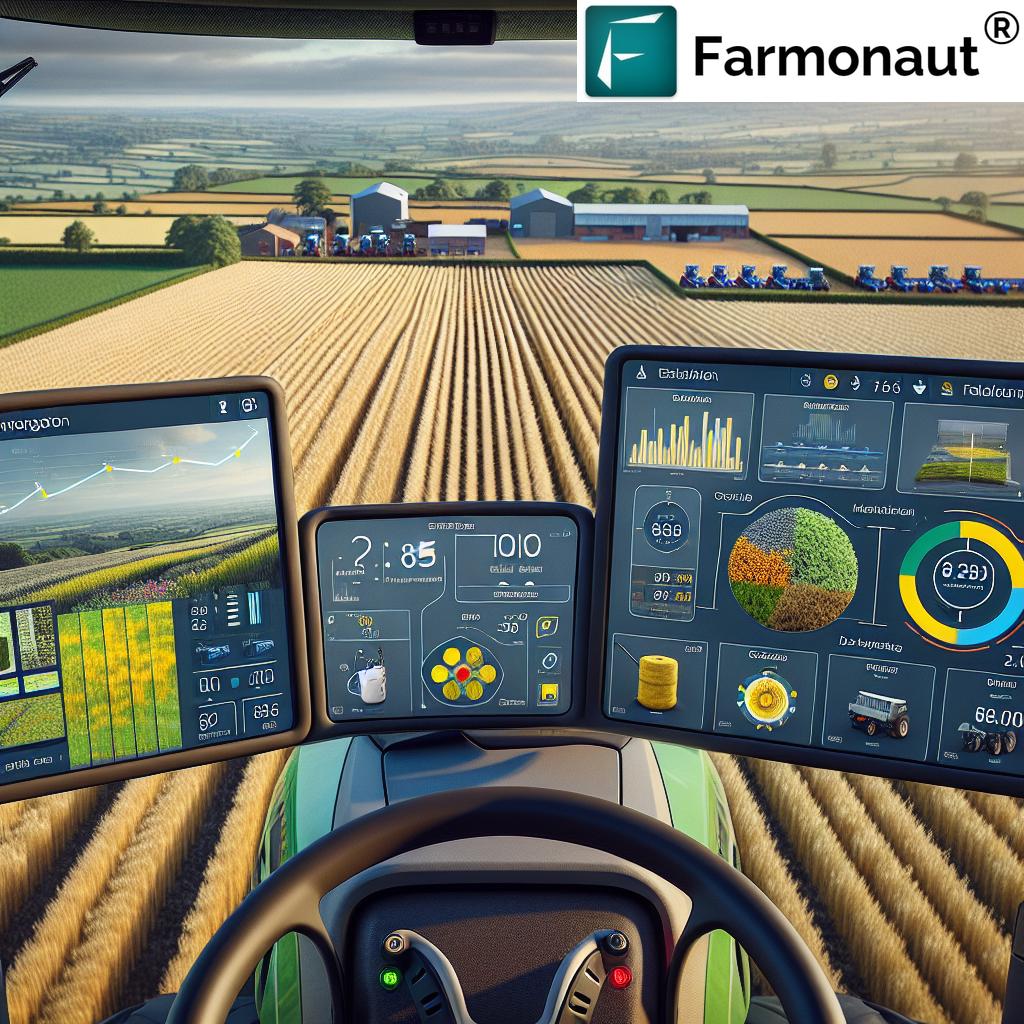



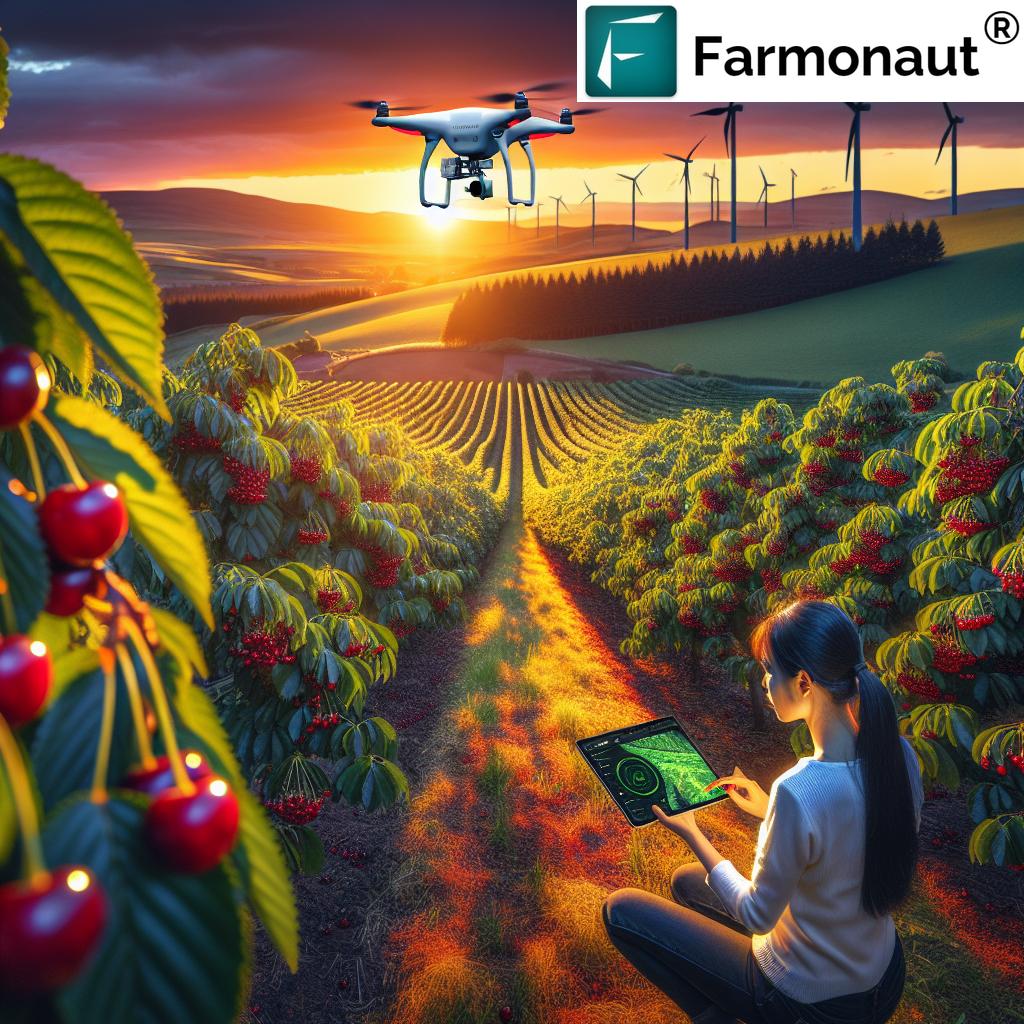
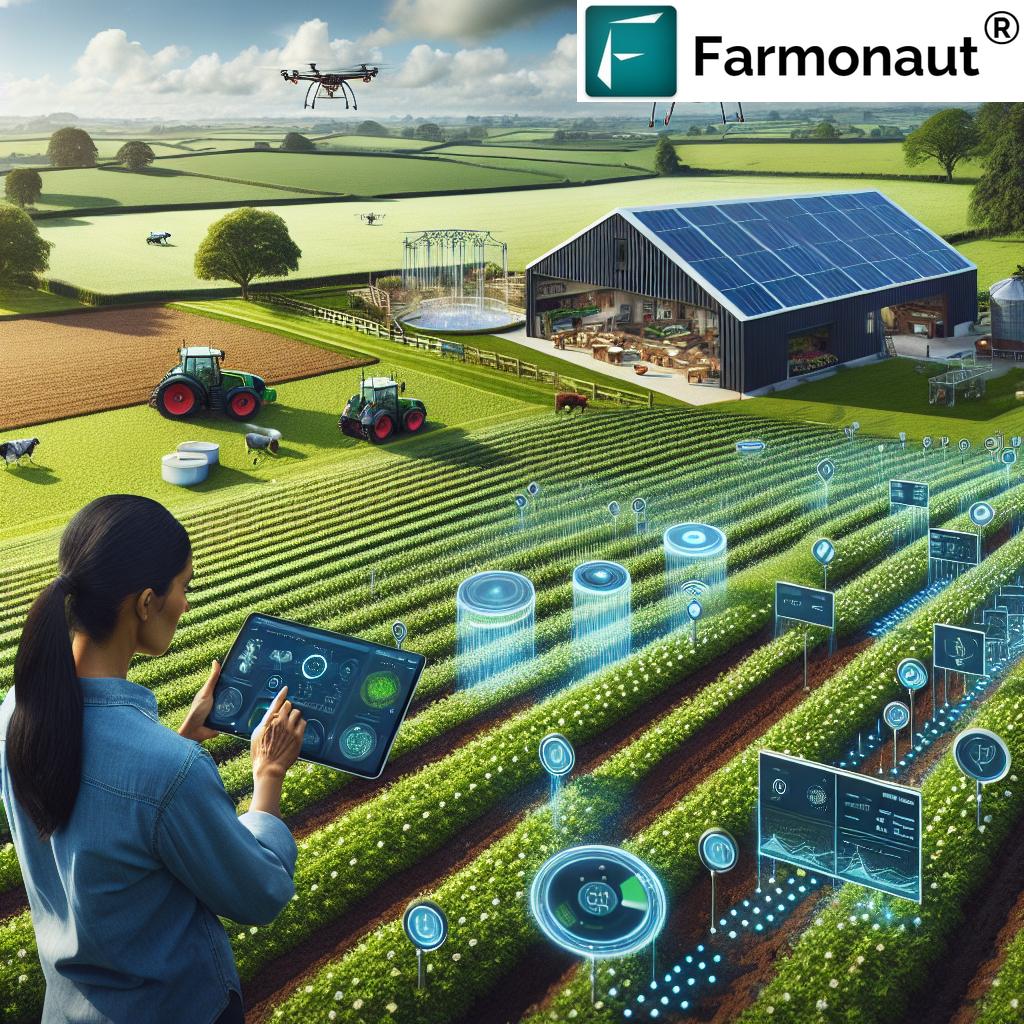
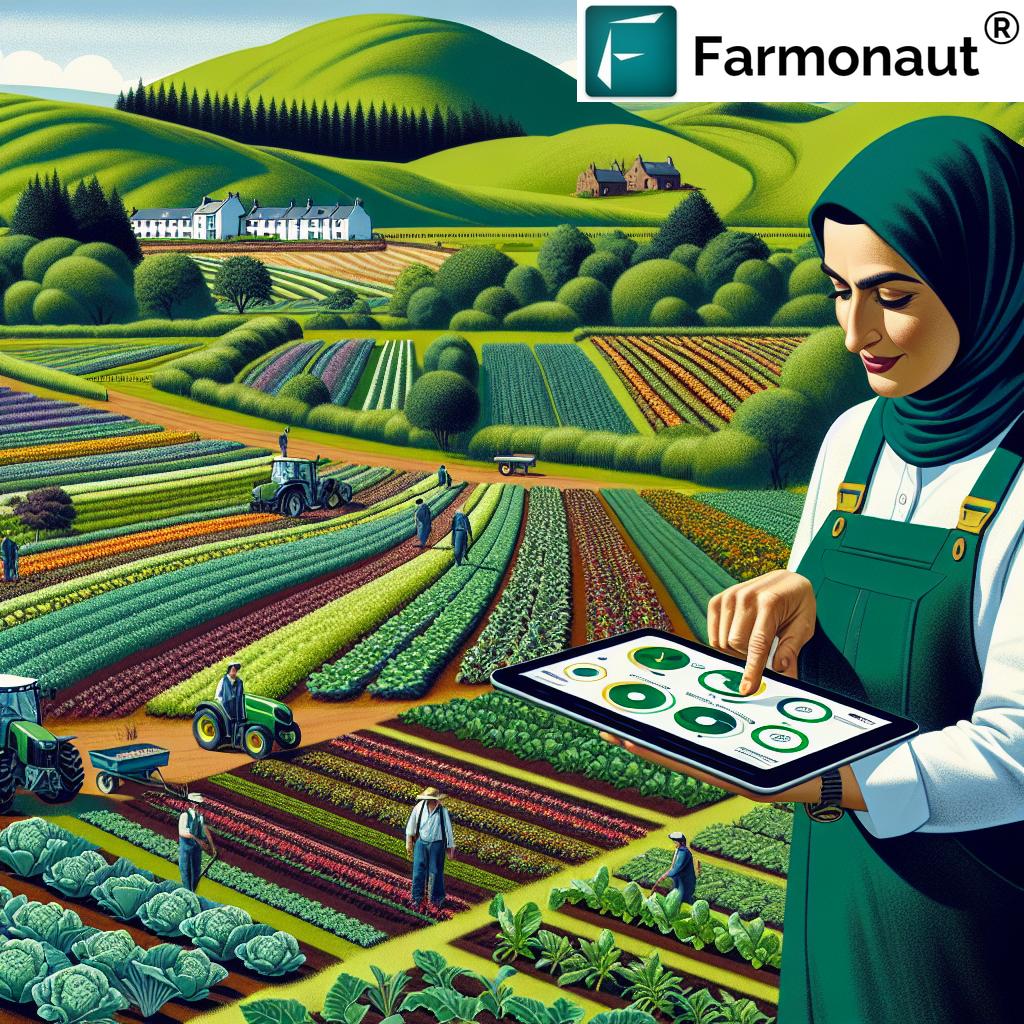
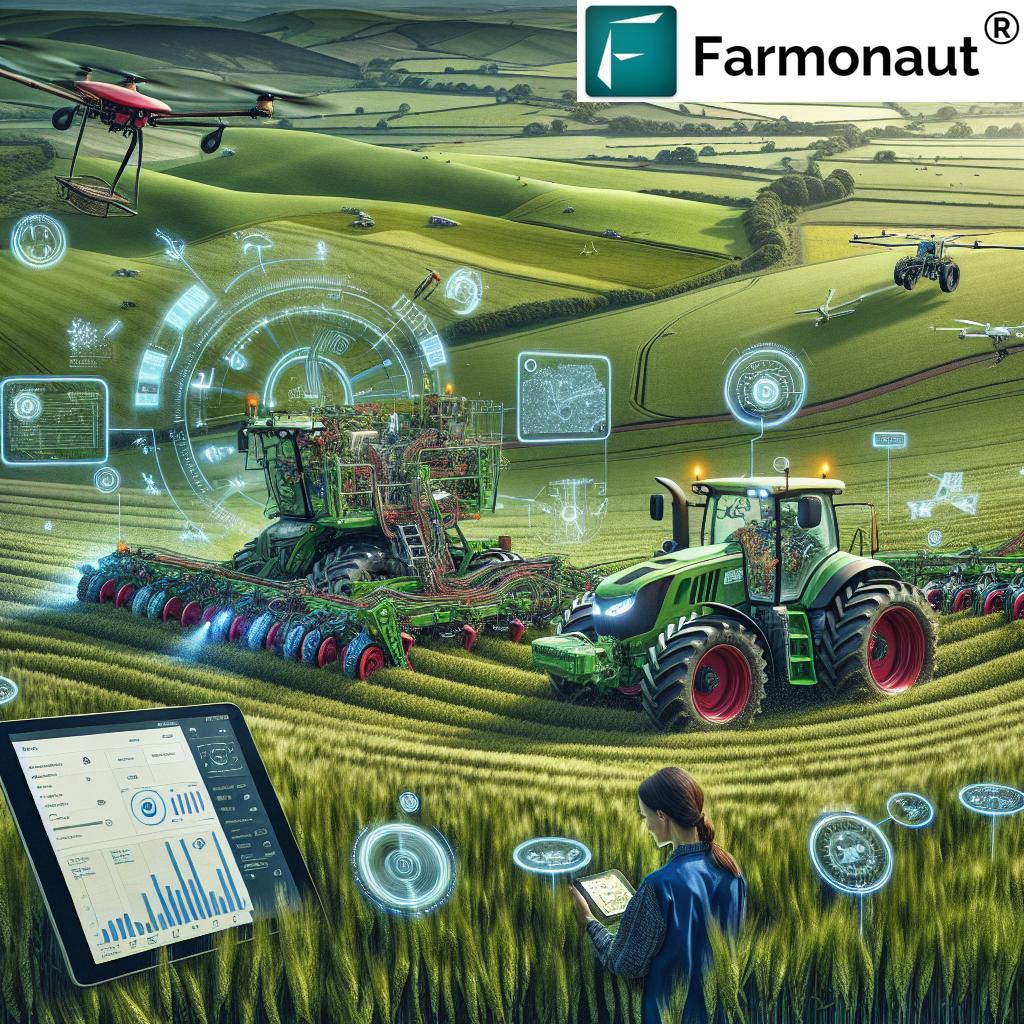
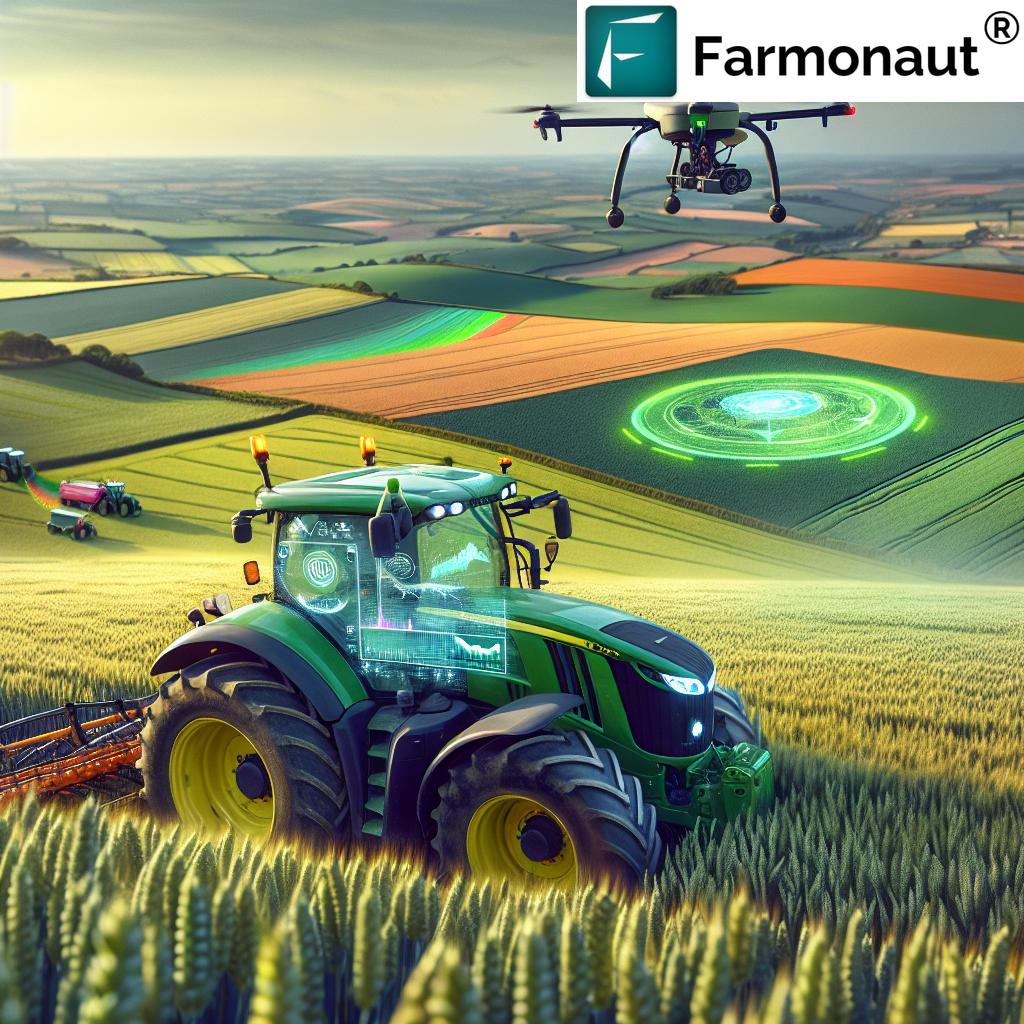
There is a quick win available. Rather than argue to reverse the Chancellor of the Exchequer’s proposals, the discussion on farming and inheritance tax (IHT) needs to move on from protest alone to proposing alternatives that genuinely protect family farms but prevent tax avoidance (and inflation of land prices) by wealthy landowners with little or no interest in farming. The continuity of family farms is important for food production and an important glue for sustaining rural communities, making some farming-related inheritance tax (IHT) concessions justifiable, but a simpler, fairer, better targeted approach than changing Agricultural Property Relief (APR) is required. Reversing the proposal maintains the status quo with all its associated abuse by the very wealthy. Certainly the proposed thresholds could be raised, but that would remain overly complicated and will benefit even more tax avoiders than currently proposed if they fall beneath a raised threshold. It’s also ironic, and harsh, that a Labour government’s proposal disadvantages single parent farmers – e.g. divorced or widowed – who cannot share allowances with a spouse. Practical alternatives, such as a current farm residency requirement, or heirs’ commitments to continue farming for a number of years, or practicing nature-friendly farming practices, in exchange for IHT concessions have not been explored, but still could be (there is much to be learned from such approaches in Europe – especially France). A collaborative effort between the NFU and government on such ideas could break the current deadlock and reset relationships without either side losing too much face. This all leaves me puzzled that there is so little discussion about alternatives. Might this be a case of sheer intransigence on the part of the government combined with protection of their wealthy members by the NFU and CLA? Whatever the answer to that, this is surely an own goal for Labour as it provides ammunition for the political right wing who are very good at spotting opportunities to widen divisions and promote unfounded conspiracies.